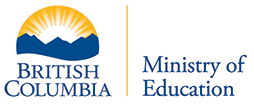
Unit Plan: Orange Shirt Day
Social Studies / Grade 8-12
Big Ideas
Social Studies 8
- Contacts and conflicts between peoples stimulated significant cultural, social, political change.
- Exploration, expansion, and colonization had varying consequences for different groups.
Social Studies 9
- Disparities in power alter the balance of relationships between individuals and between societies.
Social Studies 10
- Worldviews lead to different perspectives and ideas about developments in Canadian society.
BC First Peoples 12
- The impact of contact and colonialism continues to affect the political, social, and economic lives of BC First Peoples.
Comparative Cultures 12
- Understanding the diversity and complexity of cultural expressions in one culture enhances our understanding of other cultures.
- Interactions between belief systems, social organization, and language influence artistic expressions of culture.
Contemporary Indigenous Studies
- Indigenous peoples are reclaiming mental, emotional, physical, and spiritual well-being despite the continuing effects of colonialism.
- Indigenous peoples continue to advocate and assert rights to self-determination.
Comparative World Religions
- Comparing beliefs provides insights and understanding of diverse global cultures and peoples.
Law Studies
- Understanding legal rights and responsibilities allows citizens to participate more fully in society.
- Laws can maintain the status quo and can also be a force for change.
- A society’s laws and legal framework affects many aspects of people’s daily lives.
Social Justice
- The causes of social injustice are complex and have lasting impacts on society.
Concepts:
- Identity
- Human Rights
Essential Questions
Students will keep considering…
- Why does it matter to learn about Orange Shirt Day?
Evaluative Criteria
N/A
Monitoring Progress
Teacher will monitor progress:
Teachers can monitor progress through ongoing formative assessment including but not limited to:
- Class discussion
- Engagement with Material
Resources
PRIMARY RESOURCES
- Shin Chi’s Canoe by Nicola Campbell
- Phyllis Webstad’s story
- Phyllis Webstad’s video
- United Nations Declaration of Human Rights
ADDITIONAL RESOURCES
- Lesson Plans for Orange Shirt Day
- Speaking Our Truth by Monica Gray
- Speaking Our Truth Teachers Guide
- Gladys We Never Knew
- I Am Not a Number by Jenny Kay Dupuis
- BCTF Project of the Heart
Reflection
How will teachers and their students reflect on and evaluate the completed project?
Teacher Reflection
- What aspects of the unit went well?
- What did students struggle with?
- What did you struggle with?
- What would you add/revise the next time you taught this unit?
- Were there any unintended outcomes?
- Were students engaged?
Downloads
Unit Overview
Subject
Social Studies
Topic
- Honouring residential school survivors and those who attended.
- Why is Orange Shirt Day important for all Canadians?
- Why does it Matter?
Unit Overview
This lesson is for any grade 8-12 to address the importance of Orange Shirt Day in Canada.
Grade
8-12
Unit Duration
N/A
Related Big Ideas
N/A

The following resources are made available through the British Columbia Ministry of Education. For more information, please visit BC’s New Curriculum.
Big Ideas
The Big Ideas consist of generalizations and principles and the key concepts important in an area of learning. The Big Ideas represent what students will understand at the completion of the curriculum for their grade. They are intended to endure beyond a single grade and contribute to future understanding.
Core Competencies
 Communications Competency
Communications Competency
The set of abilities that students use to impart and exchange information, experiences and ideas, to explore the world around them, and to understand and effectively engage in the use of digital media
 Thinking Competency
Thinking Competency
The knowledge, skills and processes we associate with intellectual development
 Social Competency
Social Competency
The set of abilities that relate to students’ identity in the world, both as individuals and as members of their community and society
Curricular Competencies & Content
Curricular Competencies are the skills, strategies, and processes that students develop over time. They reflect the “Do” in the Know-Do-Understand model of curriculum. The Curricular Competencies are built on the thinking, communicating, and personal and social competencies relevant to disciplines that make up an area of learning.
Additional Resources
First People's Principles of Learning
To read more about First People’s Principles of Learning, please click here.
For classroom resources, please visit the First Nations Education Steering Committee.
